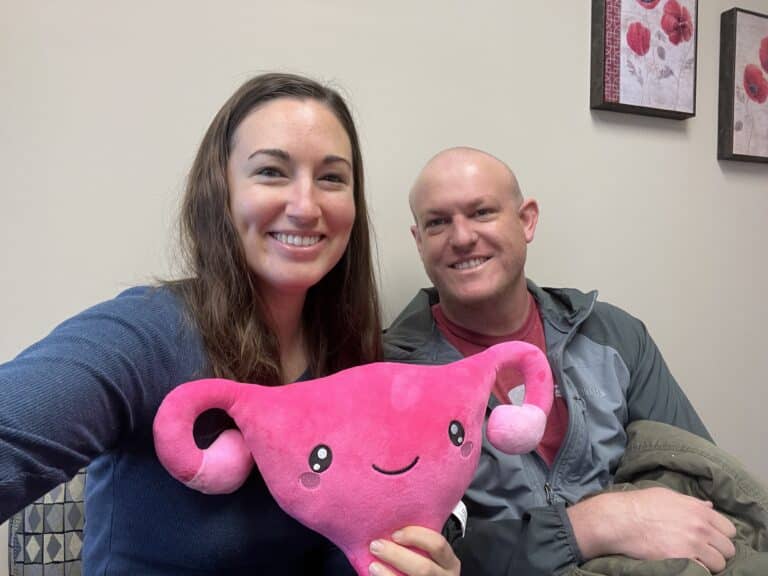Megan Lierman is a busy stay-at-home mom of three boys living in the northwest suburbs of Chicago.
She had her youngest son, two-and-a-half-year-old Elliot, through in-vitro fertilization, or IVF. More than 4,000 babies were born in Illinois in 2021 with the help of reproductive technologies like IVF, according to the latest data from the Centers for Disease Control and Prevention.
Lierman was diagnosed with a heart condition during her second pregnancy, and doctors advised her to not have any more children. She then decided to get her tubes tied.
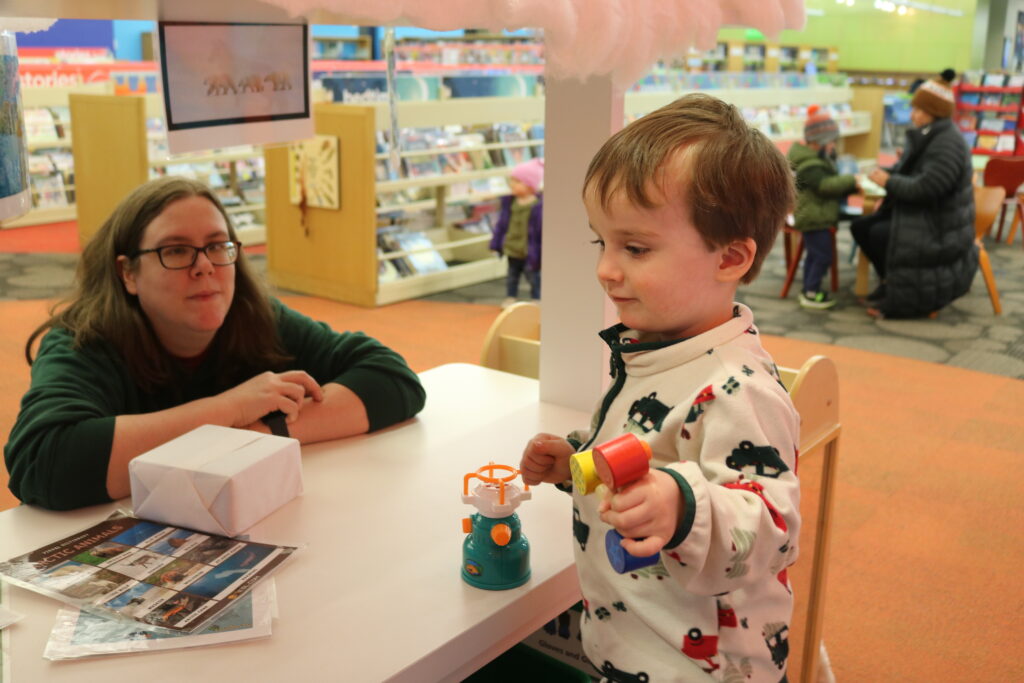
But the diagnosis turned out to be incorrect, and when Lierman and her husband wanted a third child, IVF was their only option. She received her treatments at InVia Fertility in Hoffman Estates in the Chicagoland area.
On the campaign trail, Donald Trump said that he would protect access to IVF and mandate insurance companies to provide expanded coverage. Now that he’s heading back to the White House, not everyone is convinced he’ll live up to that promise. That includes Lierman.
“I don’t buy it. I think he says what he wants to say,” she said. “I think if Senator Duckworth wants to, it’ll happen. I fully believe it should, because there are people who can’t get pregnant for a variety of reasons.”
Illinois Democratic Senator Tammy Duckworth’s two children were conceived through IVF treatments. She sponsored a bill to protect IVF, but the measure failed in the U.S. Senate last year.
Duckworth and a group of senators wrote a letter to the head of the Centers for Medicare and Medicaid Services in December. They want the agency to provide guidance to states on expanding coverage for fertility services, including IVF.
These actions followed an Alabama Supreme Court decision last year that ruled frozen embryos qualify as children under state law and are subject to legislation dealing with the wrongful death of a minor. The ruling impacted access in Alabama.
Some advocates and IVF patients in Illinois now have mixed emotions and feelings as a new Republican-led administration takes control later this month.
Dr. Eve Feinberg is a board member of the American Society for Reproductive Medicine and she specializes in Reproductive Endocrinology and Infertility at Northwestern University’s Feinberg School of Medicine.
“I do feel relatively safe in Illinois,” she said. “I think that Senator Duckworth has made incredible strides towards protecting Illinoisans and towards expanding access to infertility coverage in the state of Illinois, but I worry a lot about government interference in health care, and specifically government interference in the arena of IVF.”
Molly McLay and her husband Barry Bradlyn live in Urbana. They have done four egg retrieval cycles and one embryo transfer so far. McLay had a miscarriage in 2022 after receiving ovulation inductions to get pregnant. Then after starting IVF in 2023, McLay had a stillborn baby on Valentine’s Day last year.
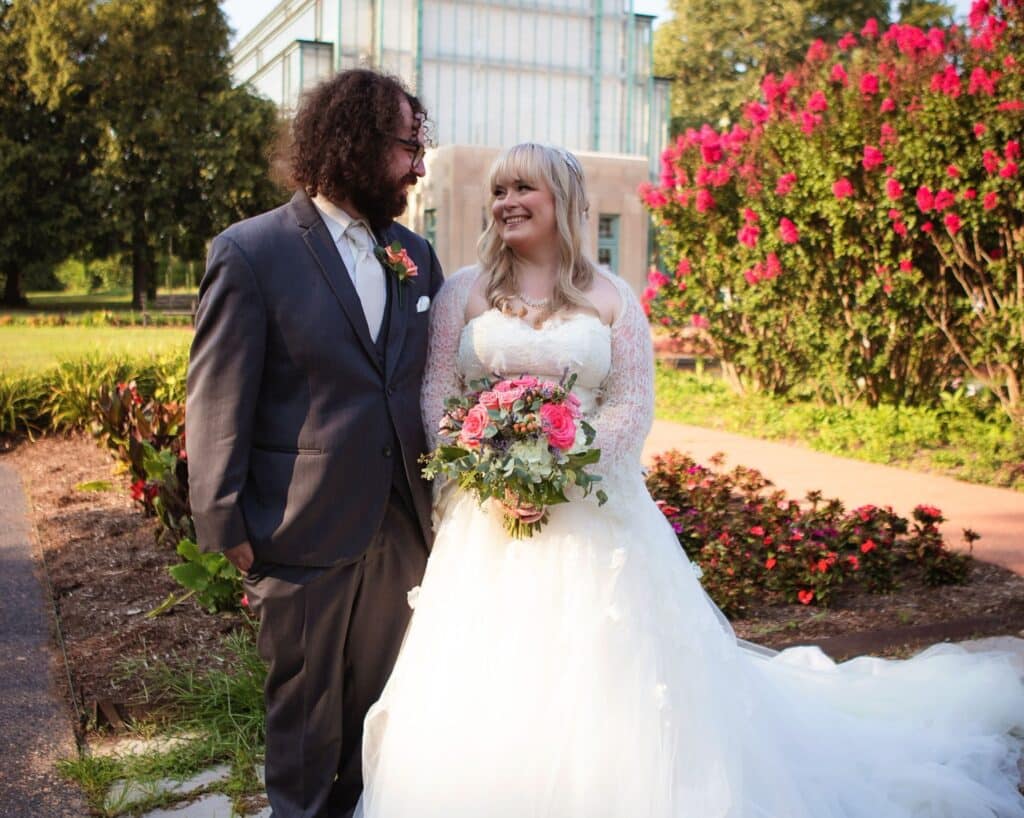
“The Alabama decision came out the day after we got home from the hospital from our stillbirth, so it was pretty devastating to read about,” she said.
“There’s actually a Facebook group for IVF patients that I was in that completely, like, broke apart over like, two days after the election, because half of the people were happy and think Trump is gonna save IVF, and half the people are like, ‘that’s not gonna happen.”
McLay and Bradlyn said they hope that Trump means what he says, but they aren’t too optimistic.
Karle Flanagan lives in Champaign and has also faced many struggles trying to conceive. Her husband was diagnosed with cancer in January 2023. Flanagan had a miscarriage around the same time. The medication her husband was taking made it hard for the couple to get pregnant again naturally.
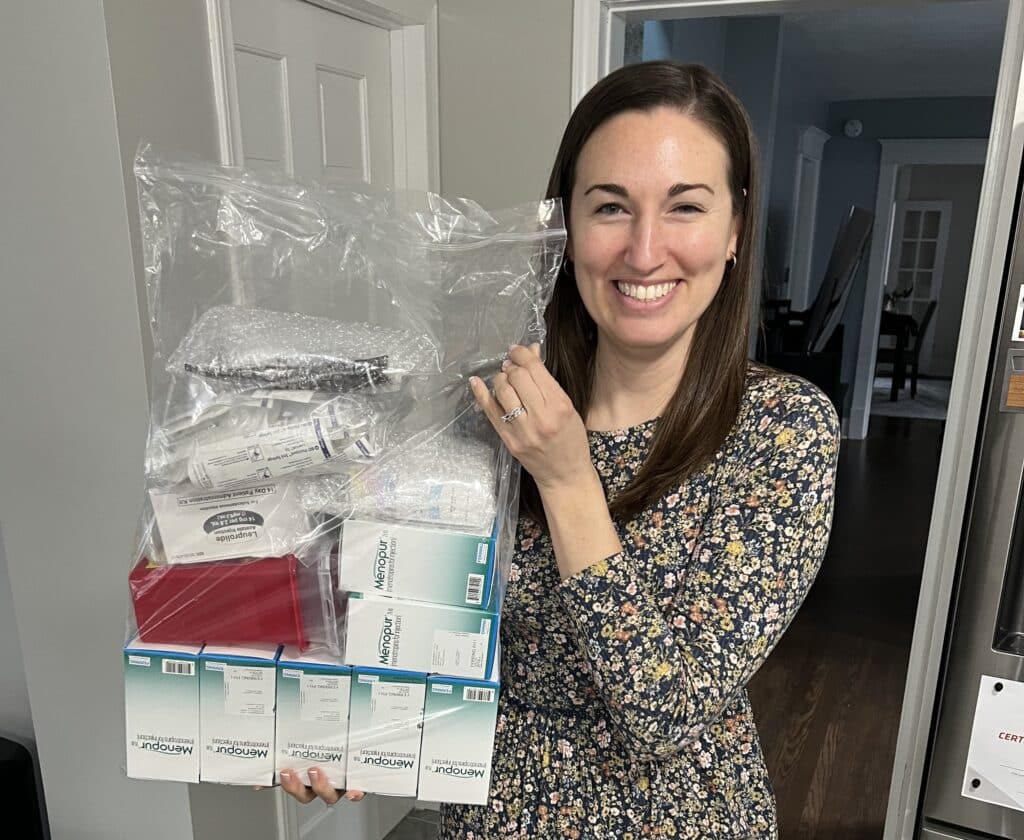
After several unsuccessful IVF cycles, Flanagan found out in December of that year that she and her husband are carriers of a rare genetic condition called PKU.
“And apparently, if I did get pregnant with an embryo that had that condition, the pregnancy would be fine, and then there would be a lot of complications when the child was born, they could potentially die very shortly after they were born,” she explained.
“And so this was, again, just a lot to take in, after everything we’d already been through.”
Flanagan said access to IVF is already difficult, because of finances, insurance coverage, and availability of clinics. She also has some concerns related to government policies that may impact treatments.
“I’m worried that it’s going to get worse, and IVF is really our only option if we want to have biological children and I’m also worried with how I hear people talking about it in politics,” Flanagan added.
“I think a lot of people have opinions about it, and honestly, until you’ve gone through it, it’s really hard to understand all the ins and outs of it- what goes on and why people do it.”
She documented her IVF journey on Tiktok.
Access
Access to clinics is an issue in some parts of Illinois.
“So there is no IVF doctor that like practices regularly in Champaign-Urbana,” McLay said. “I think at one point, this Indiana doctor used to come here and do procedures, and now he doesn’t. But there’s basically no IVF clinic that is closer than 90 minutes away.”
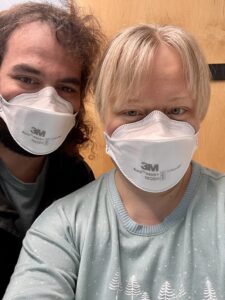
Dr. Feinberg says the state can do better when it comes to having more IVF clinics.
“Annually, there are only about 50 physicians per year who graduate fellowships in this field and enter the workforce, and we need to increase funding to expand fellowship training programs so that we have more physicians who can then go out and practice in a more geographically diverse practice setting.”
Religious beliefs also play a role in the availability of IVF. OSF Healthcare based in Peoria is one of the largest health systems covering Illinois and does provide fertility care. However, as a Catholic institution, OSF does not offer IVF services.
In a statement to IPM News, a spokesperson said its providers use “NaProTECHNOLOGY” and “the Creighton Model Fertility Care System,” stating “this approach helps to restore health and function so that conception can occur within its natural context.”
McLay and Bradlyn ended up going to Cornell Reproductive Medicine in New York for treatments.
“We sort of realized that we were going to have to be looking at places that were over a two-hour drive away and I have family in New York,” said Bradlyn.
“We decided there was no reason not to cast a wider net and see if there was a better fit out there somewhere.”
Flanagan’s doctors in Champaign recommended the Indiana Fertility Institute in Indianapolis. She started her treatments there and recently switched to Midwest Fertility Specialists, which is also in the Indianapolis area.
Expanded Insurance Coverage
Jessica Sterling, a surrogacy and egg donor coordinator based in Champaign, went to Mexico City to get IVF as she did not have insurance at the time.
Despite being a successful egg donor many times, she could not conceive because her Fallopian tubes were blocked. After one embryo transfer, Sterling became pregnant and had her daughter in 2020. The whole process, including travel expenses, cost her $10,000.
“It was something that I had to plan for to be able to afford, and then ultimately ended up going to another country for … so yes, that’s very difficult,” she said. “I know a lot of the intended parents that I work with have taken specific jobs to be able to have that coverage for IVF.”
More than 70% of Illinoisans voted in favor of expanded health insurance coverage of IVF in an advisory referendum during the 2024 election.
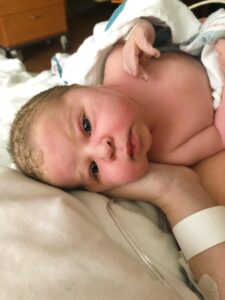
The state has a coverage mandate, which does require coverage of IVF treatments. However, employers with fewer than 25 employees don’t have to provide coverage.
Religious employers and employers who self-insure are also exempt from the mandate. Medicaid recipients are also not eligible to receive coverage.
Feinberg says it’s a problem when insurance companies limit options for IVF patients.
“When somebody is diagnosed with breast cancer, insurance does not put a limit on the amount of chemotherapy that patient needs in order to be cured from her breast cancer. Insurance covers what the patient needs,” she said.
“They don’t say we’re going to just cover you for four cycles of chemotherapy, and then after that, you’re on your own. Whereas in IVF, they put limits, and they say we’re going to cover four cycles of IVF, and after that, you’re on your own.”
Many parts of the IVF process, are typically not covered by insurance, including genetic testing as well as embryo storage and freezing.
Flanagan and her husband have spent around $40,000 during their IVF journey and faced some challenges with insurance.
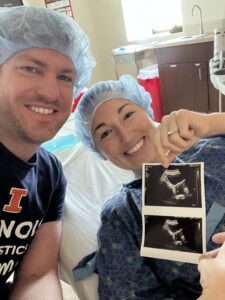
“It’s almost like a full- time job trying to be on the phone with them, getting them to cover the medicines,” she said. “You have to get pre-authorization for every medicine you do … every procedure you do. “
Future Plans
McLay and Bradlyn are doing a mock IVF cycle right now and are thinking about doing another embryo transfer with one of their frozen embryos. The couple is also considering using a gestational carrier, because McLay has uterine issues and that may cause more roadblocks in achieving a viable pregnancy.
Flanagan intends to start another IVF cycle this year.
“Physically, it’s very difficult with all the hormones and the tests and how it makes you feel, and then emotionally, has been absolutely the hardest part of it and so I am not very excited to start this back up in January, but we still do have hope that maybe it will work.”

